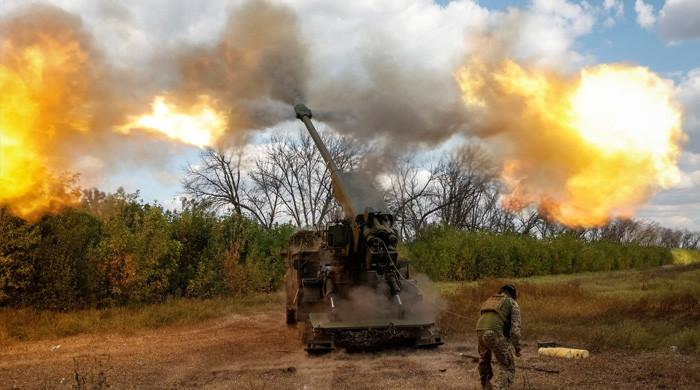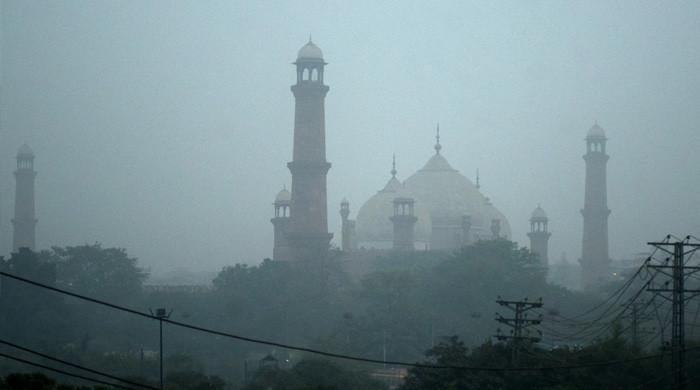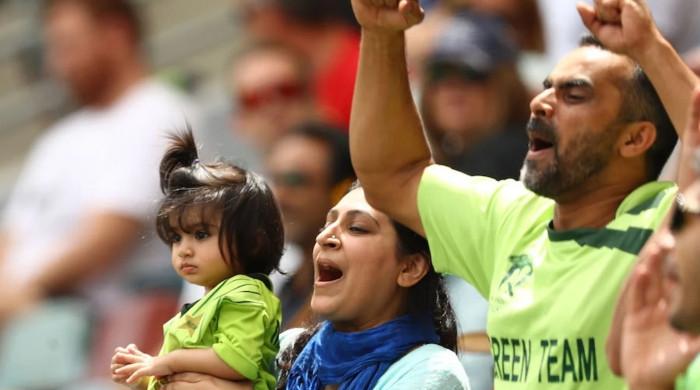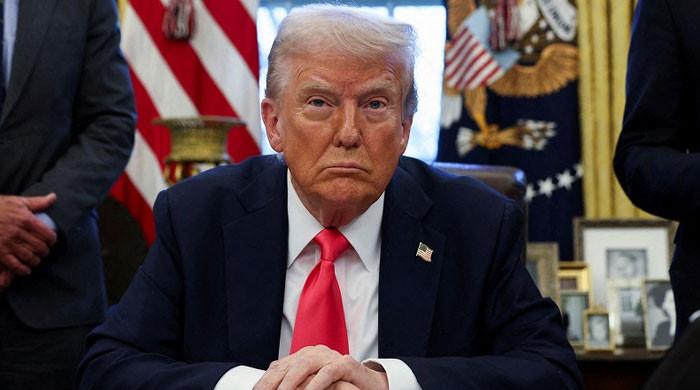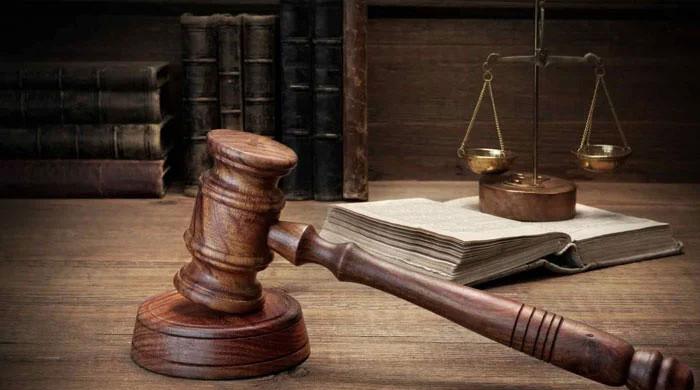Cipher case: A trial hurried is trial buried
Another 'misadventure' from either the government or the opposition after August 2024 cannot be ruled out
June 07, 2024
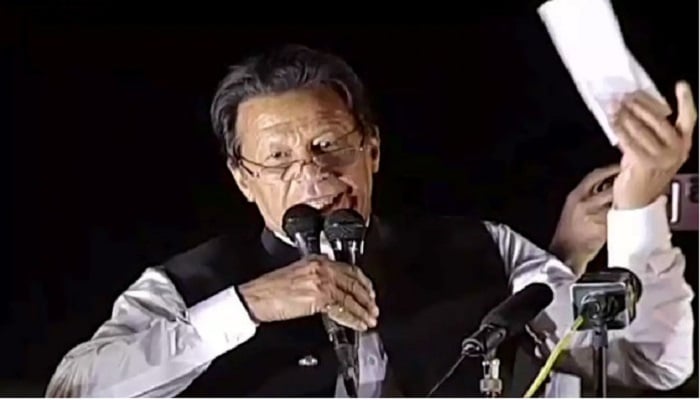
Arguably Pakistan’s most popular leader and former prime minister Imran Khan should consider himself lucky that he was voted out in a no-confidence motion in April 2022, when his popularity graph was at an all-time low, primarily because of his three-and-a-half years of ‘misrule’ and political witch-hunting.
But, between March 8th, 2022 to March 28th, he was confident that his government would defeat the move and as a last-ditch effort he tried the ‘anti-American card’. Addressing a public rally, he retrieved a piece of paper — allegedly a copy of a diplomatic cipher — from his pocket and brandished it in front of a charged crowd, claiming that it contained an incontrovertible proof of an "international conspiracy" designed to overthrow his government.
Months later a formal case was registered against him for breaching an ‘official secret’ and he was convicted by a trial court just before February 8th, 2024 polls to keep him out of polls on the face of it. However, last week, an Islamabad High Court Judge acquitted him of the aforementioned charges pending a detailed order. He and his party, Pakistan Tehreek-e-Insaf (PTI) celebrated the verdict while the ruling Pakistan Muslim League, PML (N) questioned the conduct of some ‘judges,’ accusing them of leaning towards Imran Khan.
While the US has been categorically denying IK’s allegations as baseless from day one, independent observers including senior lawyers believed that the hasty ‘trial and conviction’ made it a ‘fit case’ for appeal. Thus, instead of pointing fingers at Judges or the judiciary, the prosecution and the ruling elite should revisit their approach towards an important case. It's nothing as our political and judicial history is full of such ‘misadventures.’ So just like “justice delayed is justice denied” a “hurried case is a buried case”. “a case hurried is a case buried”
There is a long history of how even more serious cases were mishandled and politicised instead of being dealt with legally and in the end the benefit of the doubt often went to the accused.
Like some of his predecessors, Imran Khan played the ‘anti-American card’ after the US authorities showed their ‘displeasure’ over his visit to Moscow, just before the Ukraine war. In the past, this ‘card’ was used by both secular, liberal, and religious parties. The roots of these sentiments grew deeper because of the US’s suspected role in the 1971 war and again in the 1979 execution of one of the most populist political leaders of his time, former prime minister Zulfiqar Ali Bhutto. Post 9/11, religious parties led by Jamiat Ulema-e-Islam (JUI -F) and Jamaat-e-Islami (JI), which in the 80s fought American-backed Afghan war against the Soviets, allied with Muttahida Majlis-e-Amal (MMA) and organised huge anti-US rallies which benefited them in 2002 elections, particularly in Khyber Pakhtunkhwa (KP). Imran, though did not join MMA, but his stance against military operations in former FATA and Pakistan’s decision to join the anti-terror war helped him a lot in gaining popularity.
Thus, when Imran used the ‘cipher card’ people generally started believing it due to the past role of the Americans in Pakistan’s politics and how anti-American sentiments struck a chord with the mob.
Unfortunately, PDM-PPP parties instead of learning from their predecessor’s ‘actions’ used the same tactics and targeted him and his party with multiple cases like a cipher, Toshakhana, Iddat, and Al-Qadir Trust. On the other hand, Prime Minister Shehbaz Sharif’s government's economic policies in the makeshift era of 16 months made the government most unpopular due to massive price hikes. Therefore, people generally did not buy the theory of either of these cases and termed them targeted and political victimisation. Even as an opposition leader Imran Khan committed many political blunders including en bloc resignations after a vote of no confidence from the National Assembly, the dissolution of the provincial assemblies of Punjab and KP, where they had the majority, and finally the May 9 mayhem after the Imran Khan’s arrest which saw attacks on some of sensitive ‘military installations.’
A massive crackdown befell PTI months before the general elections. Despite this, the PTI vote bank remained intact. The government's and establishment’s ‘overreaction’ energised the PTI voters, who turned out in large numbers for the February 8th polls. Although PTI candidates had to contest as independent candidates after the party was disallowed from using its election symbol, the cricket bat, they made electoral history. For the first time in any party-based election, an independent group emerged as the single largest group.
Now, it hardly matters if Khan is released or not but his victory in yet another case that carries massive international importance, is considered by his supporters as big as of February 8th victory despite his disqualification, conviction, and removal of the party’s election symbol. Though Imran Khan’s acquittal can still be challenged in the Supreme Court of Pakistan.
The dilemma of our ‘ruling elite’ for long has been their ‘little sense of history.’ Trial and conviction of ‘popular leaders’ hardly hurt their popularity. ZA Bhutto, Benazir Bhutto, Nawaz Sharif, and Imran Khan are among the few examples. On the contrary, it often helped them regain their lost popularity.
Three-time prime minister Nawaz Sharif or his party Pakistan Muslim League-Nawaz (PML-N) would not have lost so much ground in Punjab had they allowed Imran to complete his five-year term or gone for early elections after ousting him — they lost both opportunities. Though there is much for Imran and PTI to learn from their multiple mistakes and blunders the present PML-N-led coalition government is facing a crisis of ‘credibility’ to the extent that even Nawaz Sharif did not accept the offer to become the prime minister after February 8 polls.
If the PTI founder gets relief in the remaining cases, including the Al-Qadir Trust case, it will not be easy for the government to keep him in prison indefinitely. Here comes the million-dollar question: what comes next? The answer is way far from simple. On one hand, the PML-N is increasingly convinced that the judiciary is favouring the opposition. On the other hand, PTI leaders, such as former President Dr Arif Alvi, are desperately seeking dialogue with the establishment. However, the establishment has made it clear, even publicly, that one of their main condition is an unconditional apology from Imran Khan for the events of May 9.
If the PTI-led six-party opposition alliance succeeds in convincing JUI-F and JI to join its anti-government movement, and if the perception of the judiciary's alleged "bias" towards the opposition grows stronger, another 'misadventure' from either the government or the opposition after August 2024 cannot be ruled out. Regarding the 'cipher case,' it will be interesting to see the government's approach if it decides to file an appeal in the Supreme Court.
The writer is a columnist and analyst for GEO, Jang and The News
X:@Mazhar.AbbasGEO
Disclaimer: The viewpoints expressed in this piece are the writer's own and don't necessarily reflect Geo.tv's editorial policy.





